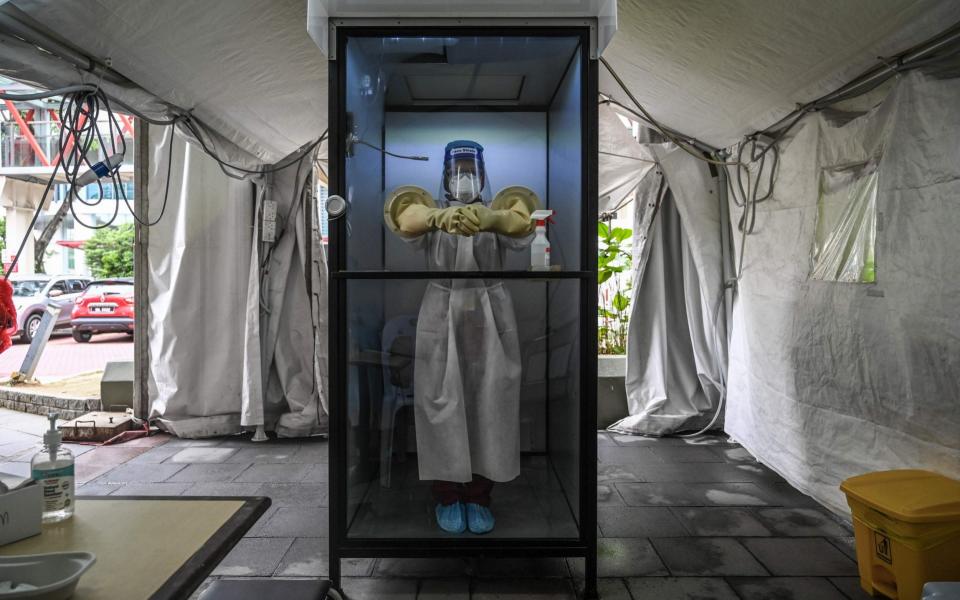Malaysia shuts world's top latex glove factories after Covid outbreak

Malaysia is to close 28 factories belonging to the world’s largest maker of latex gloves after more than 2,000 workers tested positive for Covid-19.
Top Glove, which has seen its profits soar this year amid global shortages of protective gear for medical staff, will shut its factories in phases in order to allow for further testing and quarantine.
Noor Hisham Abdullah, the Southeast Asian nation’s director general of health, said that 2,453 employees were found to have been infected by the coronavirus out of 5,767 screened so far.
“All those who tested positive have been hospitalised and their close contacts have been quarantined to avoid infecting other workers,” he said. The bulk of cases are among foreign workers as the company recruits heavily from around the region.
In a statement, Top Glove said it would cooperate fully with the relevant authorities and confirmed that it had already temporarily halted production at 16 facilities.
“The safety and well being of our employees and local community is our utmost priority towards containing the situation and to flatten the Covid-19 curve,” it said.

Infections have spiked in Malaysia since October, in part linked to regional elections in Sabah state on Borneo island, and the government has been forced to introduce restrictions on movement. The country has seen 56,659 cases so far this year.
Last week the authorities introduced 14-day curbs in an area west of the capital Kuala Lumpur, where Top Glove factories are located.
The company, which has supplied to the UK government, has previously faced multiple accusations of exploitation of its workers, who are mainly from Bangladesh and Nepal. Since April, the government has run the procurement and supply of PPE to all hospital trusts in England.
A September Guardian investigation claimed that in April, during a spike in the pandemic, some workers claimed they had been put on 12 hour shifts, six days a week, for as little as £1 an hour, and were not provided with adequate protection themselves.
The company was also accused of unlawful wage deductions and debt bondage.
It denies all allegations of abuse, and has said it is compliant with local labour laws and committed to adhering to internationally recognised standards in social compliance practices. The company says that since January 2019 it has gone through more than 1,000 international external audits at its factories.
“Employee safety, health and wellbeing have always been of utmost importance,” Top Glove said in a statement to the Guardian, and listed a number of steps it has taken to protect workers during the coronavirus, including maintaining social distance and checking workers’ temperature before entering work premises.
A spokesperson at the Department of Health and Social Care said it takes all allegations of modern slavery very seriously. “All suppliers must follow the highest legal and ethical standards. All those who subcontract orders of equipment for the NHS must fully understand their supply chains and operate responsibly, and we will not award contracts to those who fall below these standards.”
Following news of the mass Covid-19 infections, Andy Hall, an expert on migrant workers’ rights in Malaysia, alleged the management had focussed on “profit and production at all costs.”
In 2019, a Telegraph investigation into Karex, a Malaysian condom maker supplying to major global brands, found some migrant workers living in cramped and undignified, and many who were in debt bondage to recruitment firms and brokers.
The company took immediate action over the findings, hiring an independent audit company, and improving living and working conditions. It paid back the debts of hundreds of workers and stopped hiring employees from overseas as the recruitment process was open to abuse beyond its control.


